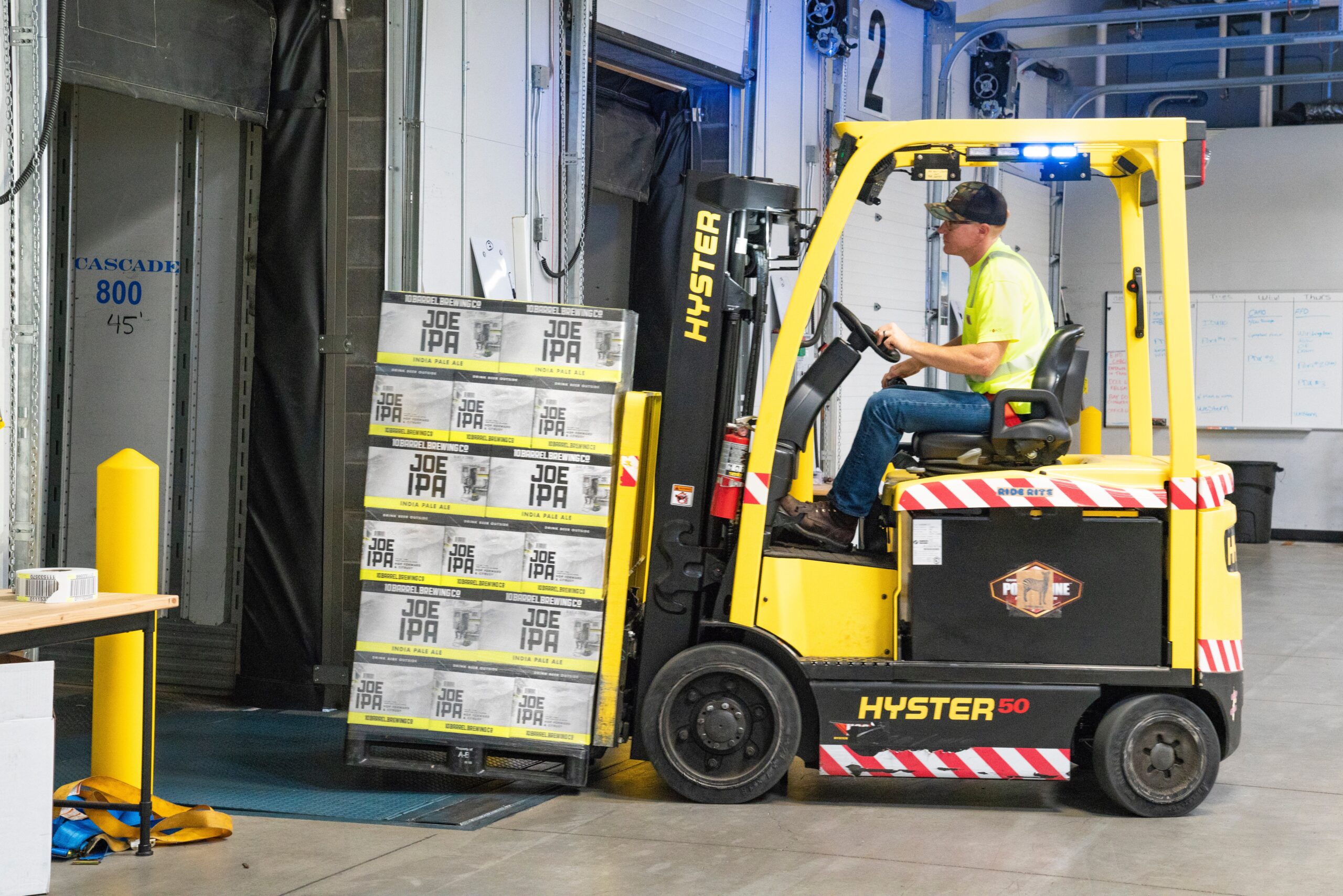The trucking industry has been booming for years, and experts predict that it will continue to grow!
The fleet of trucks in the U.S., which is a $726 billion-dollar business, hauled about 59% of all freight moved by road last year alone according to research from American Trucking Association (ATA). On top of this staggering amount, revenue projections show an increase over 75 percent just within nine short years!
When you first step into the trucking business, it can be an incredibly tough and competitive industry to get a foothold in. Many people try every year but end up failing because they are not good at both driving trucks and running their own businesses.
Starting Small
Small trucking companies are on the rise due to their low startup costs and potential for growth. Truckers will be able to find job opportunities in this industry by starting with one single truck, as 90% of small fleets have six trucks or less.
These ten tips will help guide you through the transition from just being a driver to also being successful as your own boss with your very own profitable company:
1. Trucking Authority – Trucking Company Forms
Have you ever wanted to earn a living on the open road? Well, now’s your chance! Apply for trucker authority today and start making money as soon as tomorrow. The process is easy, too: fill out our application form online or sign up here –you’ll be cruising down Route 66 in no time at all!
All you need to start a trucking company is paperwork, documentation, and forms. They may seem tedious at first glance but are necessary for your new business venture. The US DOT number in particular will allow you to get started on the right foot by applying for their authority as well as registering with certain agencies such as FMCSA which oversees safety regulations when it comes to interstate commerce involving big rigs or BAFE which handles logistics of importing goods into the United States from other countries like China.
Need help getting your Trucking forms in order – We make it EASY
2 . Choosing a Processing Agent
This is one of the most important tasks you can delegate to someone. Not only do they need to be in good standing with their state and country, but it’s also a major responsibility given that process agents are responsible for serving court papers if there ever was an issue out-of-state where legal documents need to reach your company offices.
3. Get Truck Insurance
There are many nuances to being a successful trucking company, but one of the most important is making sure you have proper insurance. Liability coverage protects your business in case someone gets injured or property damage occurs during an accident involving your vehicle. You can also purchase cargo liability and comprehensive policies that protect against accidents with other vehicles, weather-related damages due to hailstorms or mega windstorms (such as hurricanes), and losses from theft by pirates who steal items while they’re on board trucks transporting them across country borders.

4. Will You Buy or Lease your Truck?
Whether you buy or lease a truck depends on what will suit your needs best. If you have the capital upfront and want to operate with just one or two trucks, buying from an independent dealer might be your cheapest option. But if you plan to start out small but grow over time into a larger fleet, leasing is often better for cost management purposes as well as having access to different brands of vehicles depending on how fast things change in this industry.
You can get a used truck for less than the new one but it might not be worth it. According to ATRI, repairs will cost an average of $15,000 annually and if you’re driving something with over 400K miles on it that number could increase considerably!
5. Purchase the Right Trucking Equipment
Many truck drivers wonder what type of equipment the most profitable freight is, and there are a few factors to consider before making up your mind. Flatbed loads typically pay the highest rates on average at an 11% return rate for long-haul trucks; reefer loads come in second with 9%. Van and step deck cargo earns 8%, while well loaders or stake body carriers have only earned 7%. The amount you earn depends greatly on location as these numbers can vary from state to state—it may be worth doing some research into which route pays out more often than others!
Related post: 10 FAQs for getting started into the trucking industry
6. Getting an International Registration Plan
For truck drivers, the International Registration Plan is a godsend. They’ll be able to easily transport their freight across borders without worrying about additional registration fees and paperwork! Registering through IRP in your home state can also come with some pretty nice benefits including an apportioned license plate for easy identification of jurisdictions you cover as well as cab-cards that display all territories you are licensed in. The cost varies depending on vehicle weight but typically falls anywhere from $1,500-$2K USD which isn’t too bad considering how much easier it will make transporting goods internationally.
7. Are You Making Profit? Determine your Costs
Determine your fixed costs. These are the things that stay the same regardless of how many miles you drive, for example truck payments or permits. Now determine your variable costs – these depend on how many miles you travel and examples might be fuel prices or insurance premiums. Calculate an “all-in-cost per mile” figure by adding up all of those numbers to get a total cost per day if there is such data available in order to help with making more informed decisions about whether operating a vehicle will result in profit being made from it’s use; this information can also be used as guidelines when deciding which vehicles should continue operation.
8. Use the Best Fuel Purchase Strategy
When it comes to buying fuel, you have more than the pump price that matters. For many drivers who are new or inexperienced in owning a truck and running their own business, they think that cheaper prices give them better deals on gas money–this is not always true! The taxes applied at different petrol stations mean substantially higher costs when driving through states with high rates of taxation such as Washington DC for example where every gallon counts. If your vehicle uses an average amount of diesel (18 mpg), then over 19 days’ worth of travel time there will be no savings from refueling just outside the city limits rather than inside.
9. Work DIRECTLY with Shippers
Working directly with shippers is the most cost-effective way to maximize your profits. Load boards and brokers have their place in your business, but they are also very expensive. Brokers keep about 10% to 20% of the load price, which can be as much as $500 per shipment; that’s a lot for such an uninvolved service! Minimize use of both brokers and load boards by developing direct client relationships instead – this will cut down on expenses without cutting out quality services you need from time to time when you find yourself empty trucked. Charge them what’s competitive – if not higher than broker prices (since it’ll go straight into your pocket) while retaining everything for yourselves.

10. Efficiently Run your Office
Many trucking companies neglect their back office, but it is important for maintaining a budget and staying profitable. The importance of the back office becomes more pronounced as you start adding leased drivers to your operation; however, there are several options available in this area that can help any company! One option would be running accounting out of the cab of your vehicle with an internet connection at hand (most likely provided by WiFi). Another method includes leasing or renting a space that offers all necessary resources such as printers and computers close by.
Would you rather spend hours in your office doing repetitive tasks, or would you prefer to fire up Uber and have a driver take care of everything for you?
Alternatively, if the idea of constantly being on-call is too overwhelming then outsourcing your backoffice to a dispatcher may be an option. If this route sounds like it might suit what either needs from their business model better than hiring employees, don’t forget that they can get expensive quickly due to employee costs such as health insurance and benefits; so make sure when interviewing them thoroughly about how much work will need done before choosing one over another. The wrong kind of dispatcher could end up killing off any chance at success.
Start a Trucking Company With One Truck
Getting started with the proper paperwork and business plan can be a hurdle if you don’t know where to go get help. Luckily, YMA Financial owns 32nd Degree Logistics, a one-stop shop to get you readily prepared for the trucking industry. Be sure to discover everything and more that’s included!



Pingback: Ready To Get into the Trucking Industry? 10 FAQS - YMA FINANCIAL - PROVIDING REAL-WORLD GUIDANCE AND SOLUTIONS TO SUCCESS